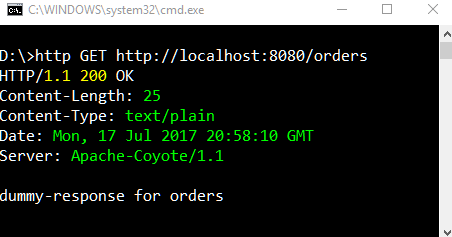Dynamic binding is a way to bind filters to resource methods programmatically.
Name binding uses a static approach. With dynamic binding we can implement code which defines the bindings during the application initialization time.
To achieve dynamic binding, we need to define a feature (extending a class from DynamicFeature and annotate it with @Provider) and programmatically register our filter (the Filter should not use @Provider).
Let's see an example how to dynamically bind a filter to resources.
Example
Implementing Filter
public class LogFilter implements ContainerRequestFilter, ContainerResponseFilter {
@Override
public void filter(ContainerRequestContext reqContext) throws IOException {
System.out.println("-- req info --");
log(reqContext.getUriInfo(), reqContext.getHeaders());
}
@Override
public void filter(ContainerRequestContext reqContext,
ContainerResponseContext resContext) throws IOException {
System.out.println("-- res info --");
log(reqContext.getUriInfo(), resContext.getHeaders());
}
private void log(UriInfo uriInfo, MultivaluedMap<String, ?> headers) {
System.out.println("Path: " + uriInfo.getPath());
headers.entrySet().forEach(h -> System.out.println(h.getKey() + ": " + h.getValue()));
}
}
Implementing DynamicFeature
@Provider
public class FilterRegistrationFeature implements DynamicFeature {
@Override
public void configure(ResourceInfo resourceInfo, FeatureContext context) {
if (MyResource.class.isAssignableFrom(resourceInfo.getResourceClass())) {
Method method = resourceInfo.getResourceMethod();
if (method.getName().toLowerCase().contains("order")) {
System.out.println("registering LogFilter");
context.register(new LogFilter());
}
}
}
}
A JAX-RS resource
@Path("")
public class MyResource {
@GET
@Path("customers")
public String getAllCustomers() {
System.out.println("in getAllCustomers()");
return "dummy-response for all customers";
}
@GET
@Path("customers/{id}")
public String getCustomerById(@PathParam("id") String id) {
System.out.println("in getCustomerById()");
return "dummy-response for customer " + id;
}
@GET
@Path("orders")
public String getOrders() {
System.out.println("in getOrders()");
return "dummy-response for orders";
}
}
To try examples, run embedded tomcat (configured in pom.xml of example project below):
mvn tomcat7:run-war
Output
During startup on server console:
registering LogFilter
Using HTTPie to access the resource:

Server output:
in getAllCustomers()

Server output:
-- req info --
Path: orders
host: [localhost:8080]
connection: [keep-alive]
accept-encoding: [gzip, deflate]
accept: [*/*]
user-agent: [HTTPie/0.9.9]
in getOrders()
-- res info --
Path: orders
Content-Type: [text/plain]
As seen in above outputs, our LogFilter was only executed for '/orders' (that is what we dynamically registered our LogFilter with)
Example ProjectDependencies and Technologies Used: - jersey-server 2.25.1: Jersey core server implementation.
- jersey-container-servlet 2.25.1: Jersey core Servlet 3.x implementation.
- JDK 1.8
- Maven 3.3.9
|